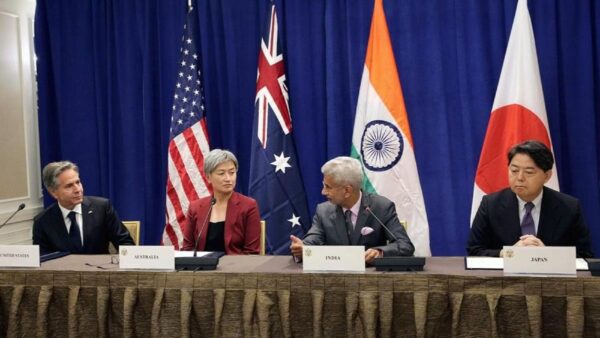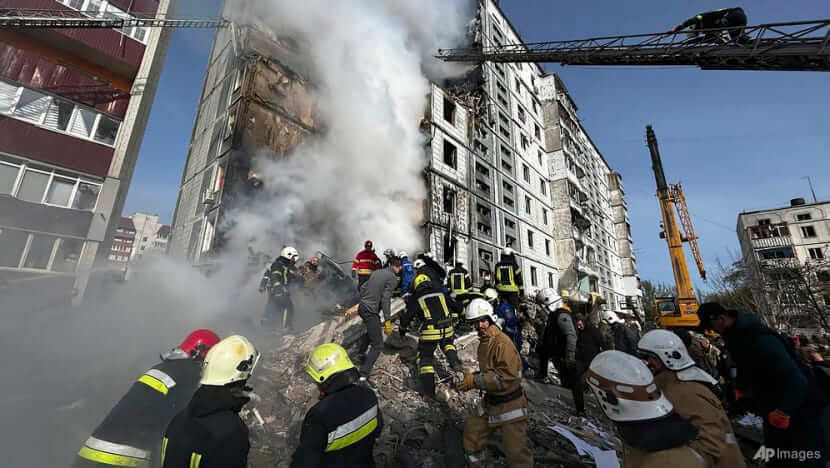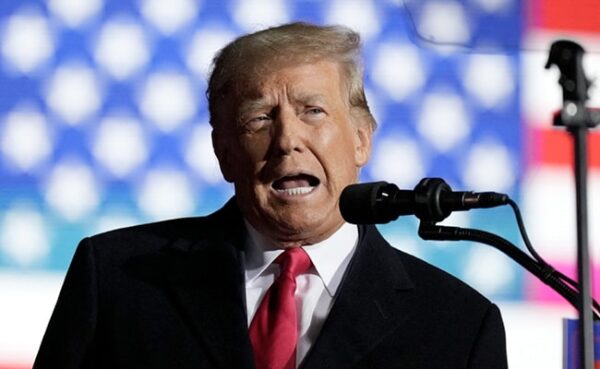The US, Japan and Australia made some strong statements against China and Russia over the weekend in Hawaii that may well set the tone for the coming meeting of Quad, but India — a neighbour of Beijing and a strategic mate of Moscow has always avoided calling them out intimately in similar multinational forums.
US Secretary of Defense LloydJ. Austin hosted Australia’s Deputy Prime Minister and Defense Minister Richard Marles, and Japanese Defense Minister Yasukazu Hamada at theU.S. Indo- Pacific Command headquarters in Hawaii Saturday, as part of the Trilateral Defense Ministers ’ Meeting( TDMM).
This time, the TDMM, which last met in Singapore in June, took place right after US President Joe Biden released the Pacific Partnership Strategy for the Pacific Islands Forum, which stated that the “ pressure and profitable compulsion by the People’s Republic of China ” has led to the “ undermining the peace, substance, and security of the region, and by extension, of the United States ”.
At the TDMM in Hawaii, all the countries – the US, Japan and Australia – that are also part of the Quad, said China and Russia are “ trying to strike ” the rules- grounded transnational world order.
According to strategic and politic sources, as the TDMM gathers further brume, it’s ineluctable that the alliance will begin to dominate the docket in Quad, pushing India to call out China and Russia more openly and intimately.
India isn’t part of this TDMM alliance. still, as part of the Quad, these countries carry out a common maritime military exercise ‘ Malabar ’ indeed as India rejects any kind of military liaison with the quadrangle.
The TDMM’s vision and docket can well transude into the quadrangle’s docket which has so far managed to only laterally gesture its concinnity and vision to China and to some extent Russia, due to India, which happens to be Beijing’s neighbour and Moscow’s strategic mate, sources told ThePrint.
The TDMM is surely going to now define and shape the quadrangle’s docket, especially now that China’s aggression towards Taiwan and Russia’s war on Ukraine intensifies, ” a politic source told ThePrint.
According to the diplomat, the quadrangle acts more like a politic forum after it was revived in 2019 from its aged icon . And it was given a fresh parcel of life only because the epidemic happed, the diplomat said, adding that else India would have been “ reticent ” in its rejuvenation of feathers.
The diplomat also said that indeed if the Quad came to actuality in the wake of the Indian Ocean riffle in 2004, the geopolitics has now “ fully changed ” and so has the world order post the epidemic and now after the Russia- Ukraine war.
Pertaining to Australia and Japan as the US ’ “ veritably closest abettors ”, Austin Saturday said at the TDMM, “ For decades, our three republic have worked shoulder- to- shoulder as an anchor for stability and substance in the Indo- Pacific and around the globe. ”
in the Taiwan Strait and away in the region, ” Austin was quoted in a statement issued by the Pentagon.
At the meeting, Australia’s Marles said, “ We see the trilateral between our three countries as only growing deeper and stronger, and we look veritably much forward moment to pursuing that docket ”.
He also stressed at the TDMM that what Russia is doing to Ukraine in the ongoing conflict is commodity that Beijing is doing with Canberra by “ plying that same pressure ”.
Japan said the transnational order has been “ undermined ”. “ moment, the transnational community is faced with the severe security surroundings due to Russia’s aggression against Ukraine, China’s unilateral change of status by force in the South and East China swell, and( the) remarkable development of North Korea’s nuclear- and bullet- related technologies among others, ” Japan’s Defence Minister Hamada said through a translator. “ The foundation of the transnational order has been undermined. ”
Derek Grossman, elderly defence critic at the California- grounded think tank RAND Corporation, said, “ I just find Australia, Japan, and the US far more comfortable raising their participated view that they need to do further to fight China’s bad gesteThat is n’t the case when India is involved in these multinational conversations. ”
During a separate bilateral meeting between Marles and Austin that took place Saturday, both sides bandied China’s “ aggressive, escalatory and destabilising military conditioning in the Taiwan Strait and away in the region ”.
According to sources, Taiwan may also soon enter in the quadrangle’s docket as pressures come more violent indeed as India continues to defend Russia.The United States and Australia are united in opposing conduct that hang peace, stability and the rules- grounded transnational order, ” said Austin.
JagannathP. Panda, Head, Stockholm Centre for South Asian and Indo- Pacific Affairs at the Sweden- grounded Institute for Security & Development Policy, said the Hawaii TDMM is a reflection of how Australia, Japan and the US are “ setting their action plan concretised in areas similar as critical defence technologies. ”This will clearly set a new instigation for other minilateral groupings in the Indo- Pacific region similar as the quadrangle and the AUKUS, ” he said.
Under AUKUS, Australia plans to acquire eight nuclear- powered submarines through a trilateral defense cooperation with the US and UK.Panda added, “ quadrangle countries need to bandy further and make a agreement on how to do ahead in forging a believable cooperation in areas similar as defence technology including in cyber and space disciplines.
China’s rising dominance in critical technological space comes as a constant memorial that the Indo- Pacific region needs a strong action plan. likewise, China’s cooperation with Russia post the Ukraine war should come as a wake- up call for all the quadrangle countries to bandy cooperation in critical defence areas that involve sensitive technologies. ”
before this month, US Assistant Secretary of Defense for Indo- Pacific Security Affairs Ely Ratner, who was in New Delhi to attend theU.S.- India 2 2 Intersessional Dialogue, told journalists that the US- India security cooperation is “ further than any individual issue ” and that it’s about “ that participated vision that we’ve for the Indo- Pacific and working together to insure that future comes to consummation. ”
Meanwhile, in a significant development last week, India forced China to withdraw its resolution at the International Atomic Energy Agency( IAEA) in Vienna against the AUKUS. China had tried to get a resolution passed against the AUKUS for seeking to give Australia with nuclear- powered submarines but fortified with conventional munitions.




